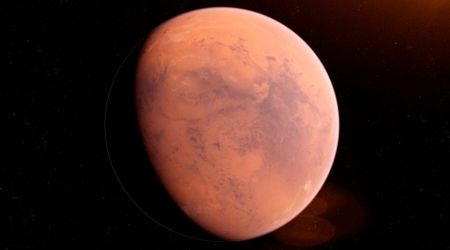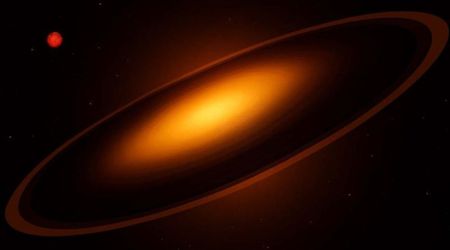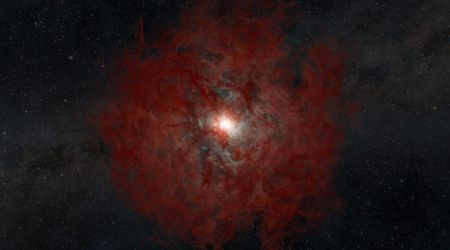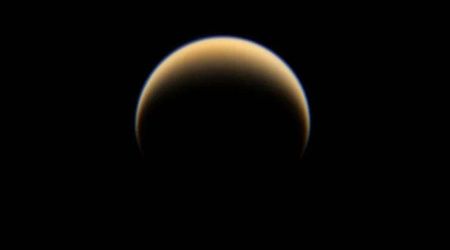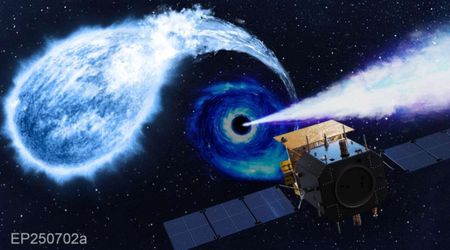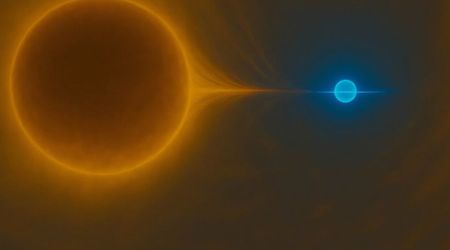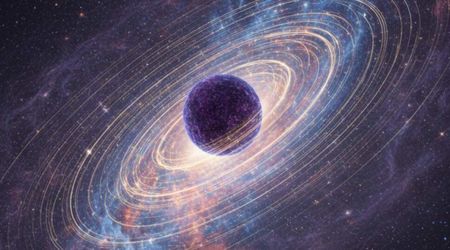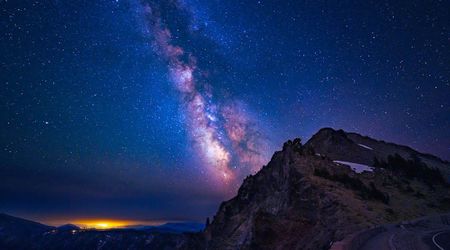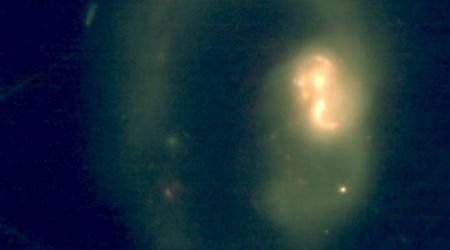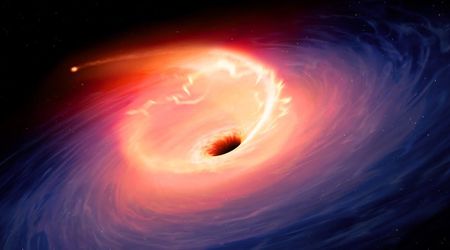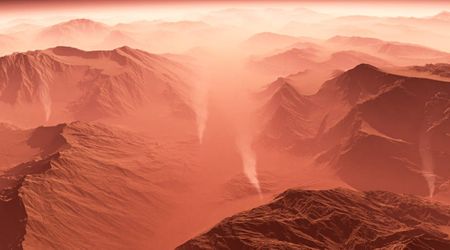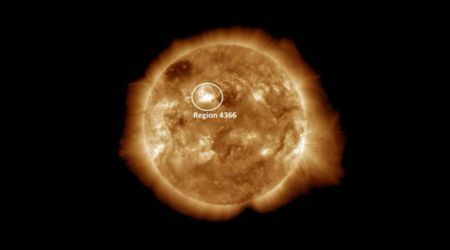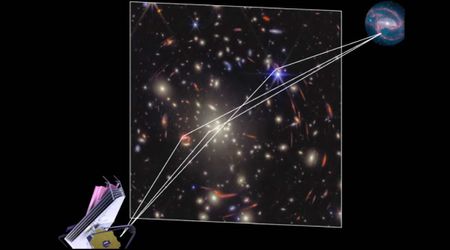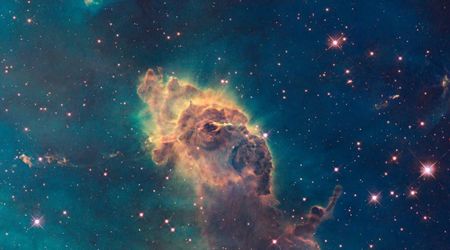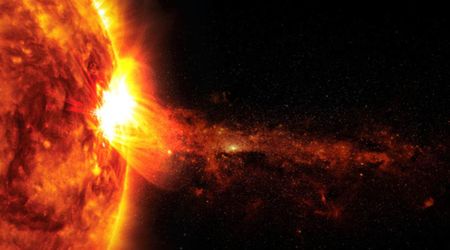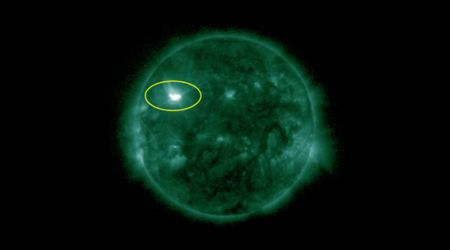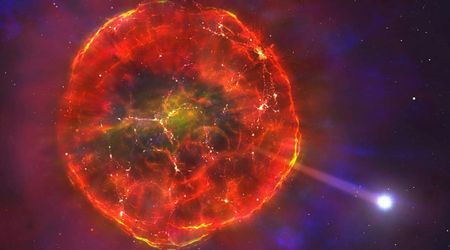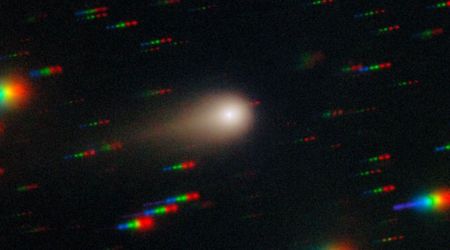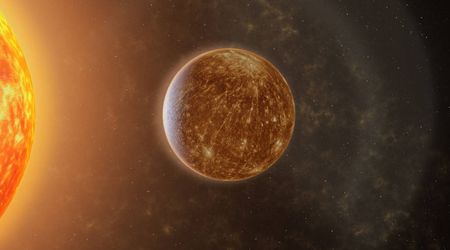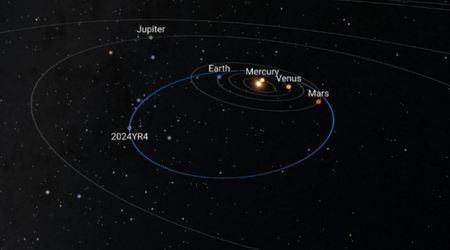Billions of years ago, a wet and warm Mars was possibly in its most habitable era
Aluminium-rich pebbles found in the Jezero Crater indicate that Mars was far from a cold, icy planet billions of years ago, as stated in another theory.
15 hours ago
A brown dwarf may have dimmed a star in what was one of the longest eclipses ever
While typical eclipses last a few days or weeks, this one lasted nearly 200 days.
20 hours ago
Failing to go supernova, an Andromeda supergiant star quietly collapsed into a black hole
The star used to be one of the brightest star in the neighboring Andromeda galaxy.
1 day ago
Saturn's largest moon, Titan, may have formed from the collision of two older moons, study finds
The collision may also be linked to the formation of the planet's iconic rings.
5 days ago
Scientists may have directly observed a black hole tearing apart a white dwarf for the first time
Intermediate-mass black holes have been the missing link in the study of supermassive black holes.
5 days ago
Red supergiant in a nearby galaxy not as close to death as once thought
The star, named WOH G64, is 1500 times larger than the Sun.
6 days ago
Dark matter powers the Milky Way’s heart instead of a black hole, new study claims
The theory explains the violent dance of stars around the galactic center.
7 days ago
Andromeda is headed toward the Milky Way, while other galaxies are moving away—and now we know why
A sheet of dark matter lying beyond the boundary of the Local Group is responsible for this.
Feb 9, 2026
James Webb Space Telescope detects surprising abundance of organic molecules in nearby galaxy
The small organic molecules that were detected could be important for prebiotic chemistry.
Feb 9, 2026
A black hole belching out the remains of a star it ate is emitting more energy than the 'Death Star'
The radio waves emerging from the black hole will peak in 2027.
Feb 6, 2026
Atypical Martian dust storm provides clues about how some of the water on the Red Planet was lost
Northern hemisphere dust storm appears to have provided an avenue for water escape on Mars in Martian Year 37.
Feb 5, 2026
Sunspot region 4366 erupts with yet another X-class solar flare, causes radio blackout
The X4.2-rated flare erupted at 7:13 a.m. EST on February 4.
Feb 5, 2026
Astronomers spot supernovas whose split light could tell us how fast the universe is expanding
One of the supernovas' light will arrive in another 60 years, while the other's will arrive in 1 to 2 years.
Feb 5, 2026
Lab-made cosmic dust could show how life began on Earth
The lab-made cosmic dust shows the same infrared signals as the dust found in outer space.
Feb 4, 2026
Scientists create 3D map of the sun's magnetic interior to help improve predictions of solar flares
The scientists fed 30 years’ worth of data from satellites into a 3D Babcock–Leighton dynamo model.
Feb 3, 2026
Newly-formed sunspot triggers dozens of solar flares, including the strongest in nearly two years
The sunspot region released as many as four X-class flares in a span of 24 hours.
Feb 3, 2026
What triggers massive Milky Way stars to run away from their birthplaces?
For the study, the researchers analyzed 214 of the most massive stars in the Milky Way.
Jan 30, 2026
Interstellar comet 3I/ATLAS tracked again by NASA’s exoplanet hunter TESS
NASA’s TESS tracked the interstellar comet during a special observation period from January 15 to 22, 2026.
Jan 29, 2026
Mercury is not a 'dead planet': Bright streaks on the planet indicate activity
While Mercury was quite active in its early days, it has been perceived as dead for a long time because of the static appearance of its surface.
Jan 29, 2026
Asteroid 2024 YR4 could still hit the Moon with a four percent impact risk
A new paper is looking into the possibility of the collision being a reality and the kind of scientific opportunities it might present.
Jan 28, 2026
